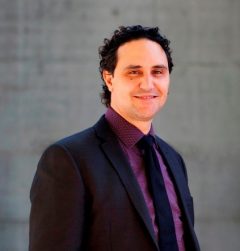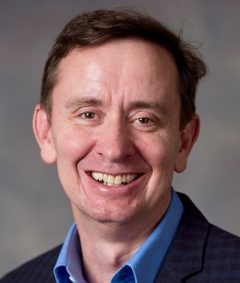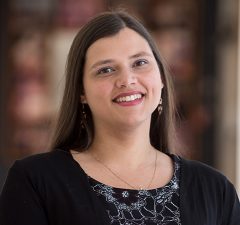Past Event! Note: this event has already taken place.
Innovative Pedagogy
October 28, 2019 at 9:00 AM to 10:30 AM
| Location: | 2017 Dunton Tower |
| Contact Email: | StrategicPlan@carleton.ca |
Intended Audience: Carleton campus community – faculty, staff and students.
Note: Specific consultations will be scheduled with students, alumni and external partners.
A light breakfast will be served. Please register below to confirm your attendance.
This event is part of Carleton’s Strategic Planning Speaker Series, which is being hosted by the SIP Task Force to prompt us all to think strategically about significant topics related to Carleton’s next strategic plan. The SIP Task Force is pleased to invite the following speakers to speak about innovative pedagogy.
Dr. James Arvanitakis
The disruption within our liberal democracies – be they social, economic or technological – have created an uncertainty within both our student cohort and faculty. How can we promote a sense of agency within such an environment that is also characterized by a growing sense of distrust towards experts and the academy more broadly? In this short presentation, I propose a number of strategies that universities can implement to respond to the challenges and remain robust institutions.
Dr. Peter Felton
Decades of research demonstrate that student-student, student-faculty, and student-staff relationships are the foundation of learning, belonging, and success for all students in higher education. These relationships also have powerful legacies that touch alumni lives for years after graduation. In my brief remarks, I will suggest that the future of teaching and learning in higher education is relationship-rich. Drawing on research for a forthcoming book, I will explore how relationships are a flexible, scalable, and humane approach to ensuring that all students experience welcome and care, become inspired to learn, cultivate constellations of mentors, and explore the big questions that matter for their lives and our communities.
Dr. Lindsay Morcom
Indigenous pedagogy is an innovative, relational, holistic approach to education that centres learner transformation. In this presentation, I will describe Indigenous pedagogy primarily from an Anishinaabe perspective, and will examine where it is cohesive with post-secondary Western institutions, and where further change must be made to facilitate its appropriate inclusion.
Register
About the Panelists
Dr. James Arvanitakis
 Professor James Arvanitakis (PhD) is the Fulbright Fellow Milward L. Simpson Visiting Professor – University of Wyoming. His substantial position remains as the Pro Vice Chancellor (Research and Graduate Studies) at Western Sydney University. A lecturer in the Humanities and a member of the University’s Institute for Cultural and Society, he founded The Academy at Western Sydney University that received an Australian Financial Review Higher Education Excellence Award (2016). James is internationally recognized for his innovative teaching style and was the recipient of the Prime Minister’s University Teacher of the Year Award in 2012 and an Eminent Researcher Award from the Australia India Education Council in 2015.
Professor James Arvanitakis (PhD) is the Fulbright Fellow Milward L. Simpson Visiting Professor – University of Wyoming. His substantial position remains as the Pro Vice Chancellor (Research and Graduate Studies) at Western Sydney University. A lecturer in the Humanities and a member of the University’s Institute for Cultural and Society, he founded The Academy at Western Sydney University that received an Australian Financial Review Higher Education Excellence Award (2016). James is internationally recognized for his innovative teaching style and was the recipient of the Prime Minister’s University Teacher of the Year Award in 2012 and an Eminent Researcher Award from the Australia India Education Council in 2015.
Dr. Peter Felten
 Peter Felten is executive director of the Center for Engaged Learning, assistant provost for teaching and learning, and professor of history at Elon University. He works with colleagues on institution-wide teaching and learning initiatives, and on the scholarship of teaching and learning.
Peter Felten is executive director of the Center for Engaged Learning, assistant provost for teaching and learning, and professor of history at Elon University. He works with colleagues on institution-wide teaching and learning initiatives, and on the scholarship of teaching and learning.
As a teacher and mentor, he regularly writes and presents with Elon undergraduates, and he works with Elon College and Honors Fellows on their research. As a scholar, he is particularly interested in learning and teaching, individual and institutional change, and student experiences and agency in higher education.
Dr. Lindsay Morcom
 Dr. Lindsay Morcom is an interdisciplinary researcher with experience in education, Aboriginal languages, language revitalization, and linguistics. She earned her Master’s degree in Linguistics at First Nations University through the University of Regina in 2006. She then completed her doctorate in General Linguistics and Comparative Philology as a Rhodes Scholar at Oxford University in 2010. From 2014-2019 she coordinated the campus-based and community-based iterations Aboriginal Teacher Education Program at Queen’s University in Kingston, Ontario, Canada. During this time she was also a professor in the Faculty of Education. She is now an associate professor and Canada Research Chair in Language Revitalization and Decolonizing Education. She is of Anishinaabe heritage and is a member of Ardoch Algonquin First Nation.
Dr. Lindsay Morcom is an interdisciplinary researcher with experience in education, Aboriginal languages, language revitalization, and linguistics. She earned her Master’s degree in Linguistics at First Nations University through the University of Regina in 2006. She then completed her doctorate in General Linguistics and Comparative Philology as a Rhodes Scholar at Oxford University in 2010. From 2014-2019 she coordinated the campus-based and community-based iterations Aboriginal Teacher Education Program at Queen’s University in Kingston, Ontario, Canada. During this time she was also a professor in the Faculty of Education. She is now an associate professor and Canada Research Chair in Language Revitalization and Decolonizing Education. She is of Anishinaabe heritage and is a member of Ardoch Algonquin First Nation.